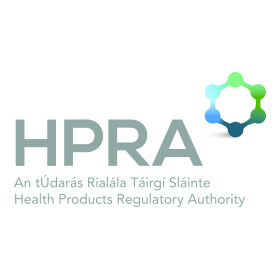Ronan Hynes, partner at Sellors LLP, calls for urgency on patient safety reform in light of the Covid-19 pandemic. The brave and heart-rendering story of Linsey Bennett on the steps of the Four Courts last week brought back into sharp focus the utter human devastation of the CervicalCheck controvers
Opinion
William Fry partners Louise Harrison and Nuala Clayton examine a case in which the rejection of an employee's request to work from home constituted constructive dismissal. In a recent decision, the Workplace Relations Commission (WRC) found that an employee was constructively dismissed when her empl
Deirdre Malone, partner at Ronan Daly Jermyn, considers the key learnings for employers in a widely-publicised case involving racial discrimination at Starbucks. Suchavadee Foley ordered a tea from Starbucks last January. Not a tricky transaction, however, the interaction resulted in a €12,000
Ronan Daly Jermyn partner Gillian Keating and intern Jamie Wall take a closer look at the EU vaccine contract debacle. With the United Kingdom, Ireland and the rest of Europe, having spent over four years anticipating the would be ‘fall-outs’ of the UK’s decision to approve Brexit,
Benjamin Bestgen this week explains that the extinction of rights upon death is more complicated a matter than it first seems. See his last jurisprudential primer here. Fans of old-school computer games might still remember Grim Fandango, where the player guides afterlife travel agent Manny Cal
Employment law solicitor Richard Grogan considers Fixed Term Work Act contracts and their interaction with the Unfair Dismissal Acts 1977-2015 and the Maternity Protection Act 1994. The Labour Court, in a recent case of Akina Dada Wa Africa and Claudia Horeau UDD/18/237, determination number UDD216,
Philip Lee partner Clare Cashin, senior associate Michael Cahill and associate Thompson Barry Doherty provide an overview of the first judgment in Ireland concerning the enforcement of an adjudicator's decision. The decision of Mr Justice Garrett Simons in Gravity Construction Limited v Total Highwa
Patrick Mullarkey, partner and joint head of healthcare at O’Reilly Stewart Solicitors, warns of a tsunami of medical negligence cases that could become one the many fallouts of the Covid-19 pandemic. There have been many vivid and disturbing images throughout the Covid-19 pandemic that have r
Benjamin Bestgen examines the impact of "respectability" in criminal trials. See last week's jurisprudential primer here. Tropes like the “Gentleman Thief” pick up on the allure of the white-collar criminal: a person who appears respectable, educated, even charming. A worldly, cleve
Seán O'Donnell, partner at ByrneWallace, examines the 14 principles underpinning Ireland's regulator's approach to data processing. On 18 December 2020 the Data Protection Commission published its draft Fundamentals for a Child-Oriented Approach to Data Processing. Building on existing guidan
Eamon Harrington, dispute resolution partner at Comyn Kelleher Tobin, looks at how Covid-19 and Lockdown 3.0 is having an impact on the court system and on mediations to resolve disputes. The President of the High Court earlier highlighted the obligation of all stakeholders to ensure that the admini
Employment law solicitor Richard Grogan of Richard Grogan & Associates looks at the increasingly prominent issue of dismissing an employee who is sick or ill. At present in Ireland there is no statutory sick leave scheme. This is likely to come in. The issue that has yet to be addressed is wheth
Dr David Kenny, assistant professor of law at Trinity College Dublin, argues the government's legal advice on the rights of adopted children is flawed and a referendum on the matter is not needed. As the country comes to grips with the report of the Mother and Baby Homes Commission and reckons yet a
Benjamin Bestgen considers the fairness of the high standards to which we hold lawyers. Read last week's jurisprudential primer here. The legal profession is a deeply human one and humans are complex creatures. As a species we are capable of extraordinary feats of courage, intellect, wisdom, kindnes
Jason O'Sullivan, solicitor and public affairs consultant at J.O.S Solicitors, examines the dilemma employers will face when they encounter employees who refuse to take the vaccine and what measures they should take to deal with them. As the rollout continues with the Covid-19 vaccinations, its welc
























